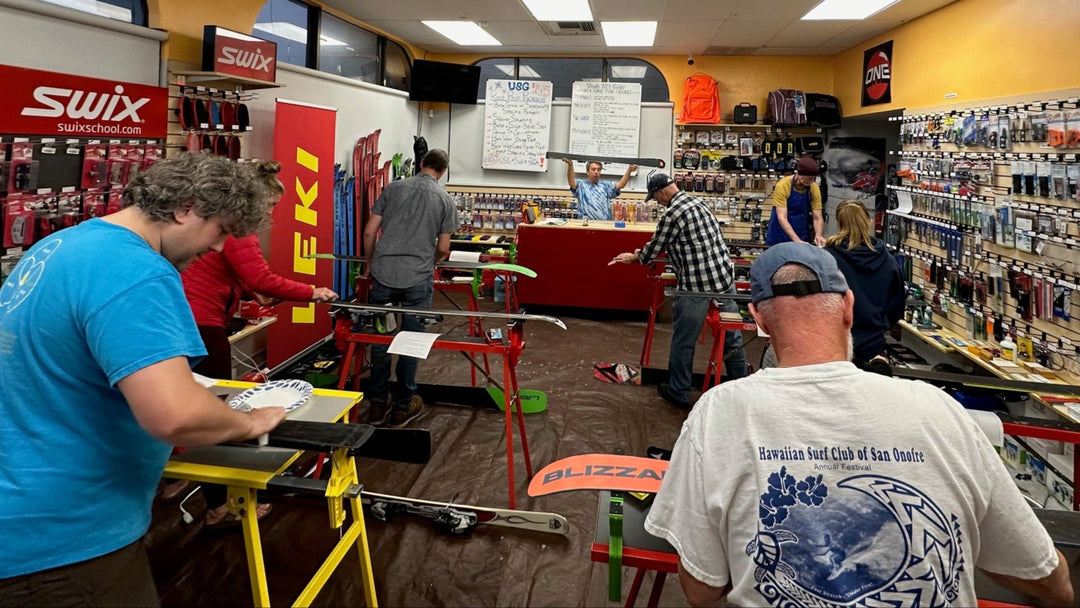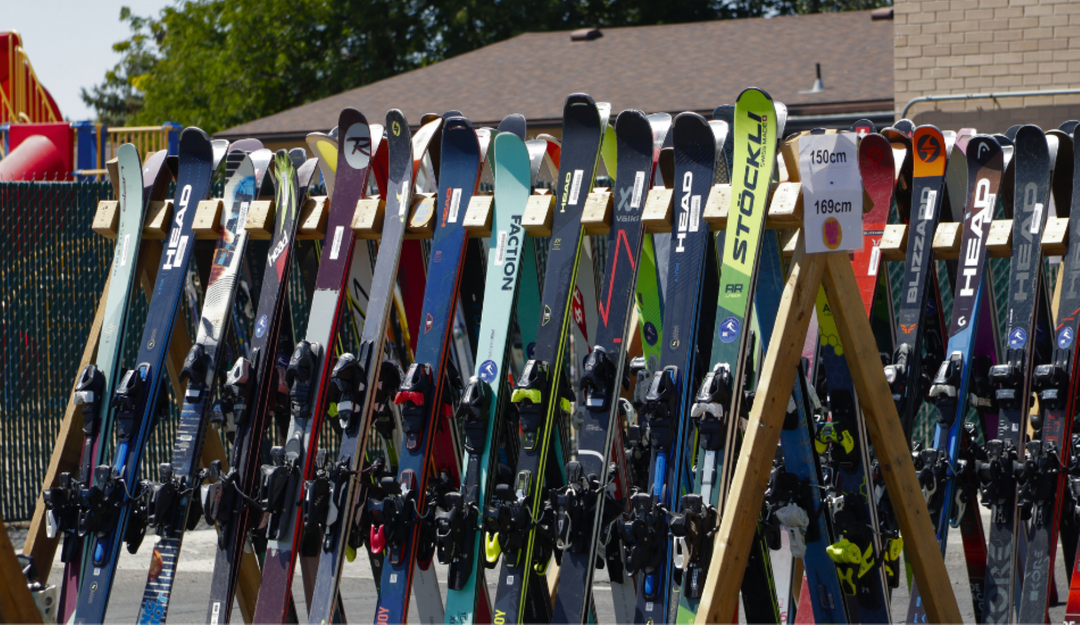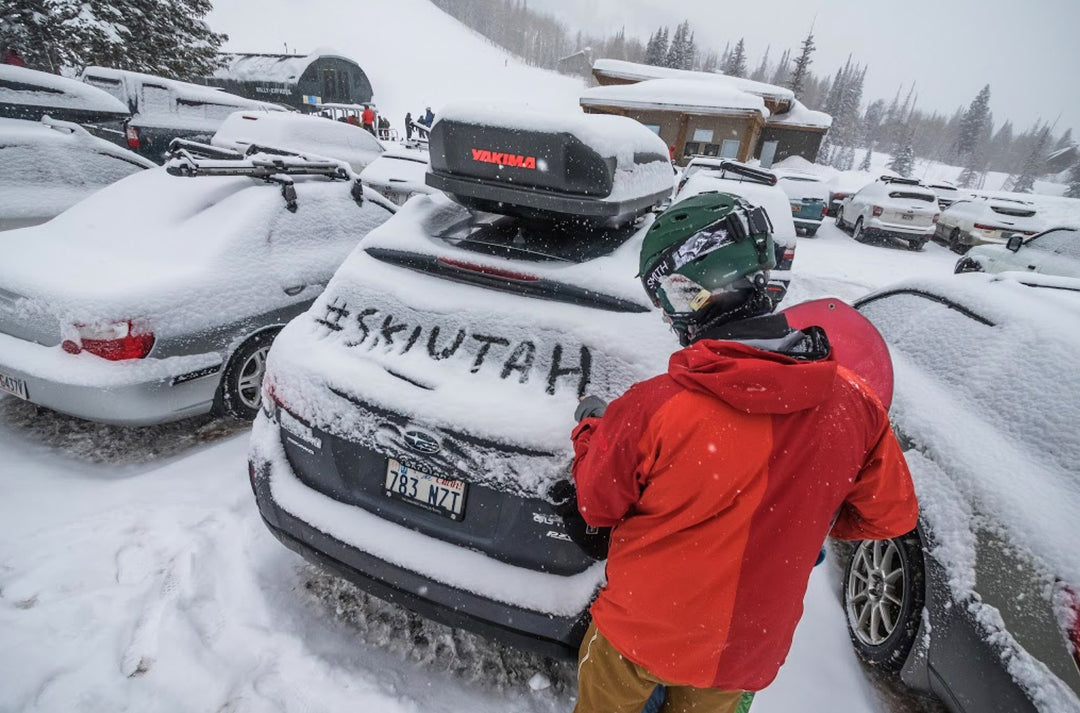Utah Ski Gear
Used Gear Buyers Guide


Utah Ski Gear's Used Rating System
At Utah Ski Gear, every piece of used equipment is given a used gear condition rating. Buying used equipment is a great way to get into the sport and save money, but can be extremely overwhelming. We always recommend reading our Used Buyers Guide, researching the equipment, and asking questions. Most local shops and independent sellers should be able to provide a brief history of the gear or additional photos - just like we do! On our product pages you will find the following scale with detailed information for the base, edge, and top sheet of our used equipment.
Utah Ski Gear Condition Rating System:
New - Like New - Very Good - Good - Fair - Poor
Why buy used equipment?
Buying used ski and snowboard equipment is a great way to save some money and is better for the environment! If you are looking to buy used ski and snowboard equipment then there are a few things you should consider in order to avoid future obstacles or complications.
What to look for:

Boot Soles
Ski boot soles that are too worn are not able to safely click into ski bindings.

Binding Compatibility
Not all ski bindings are compatible with all ski boots, and on a used ski they may require a remount.

Major Damage
Major damage like large core shots, cracked/impacted edges, or delamination can be difficult to fix and lead to more issues.
Ski Boot Soles
As people walk around in the parking lot, streets, or other hard ground, the base of their ski boot begins to wear off. The front and backs of the boots will wear down the quickest, as this is where the majority of the impact is when walking. Make sure that the boot has not worn down enough to become significantly rounded on the end, as this will be dangerous in the binding. Additionally, sometimes screws and other parts of the boot may be more prominent if the boot sole has begun to wear down.

This boot sole is too worn to use safely.

This boot sole is worn but is still safe to use.

This boot is too large for this binding.
Ski Bindings
If you are buying used skis online then it is likely that it will come with a binding already mounted. It is important to look at the size range for the current binding mount as remounting a binding can be a hassle and will raise the investment price of the ski. Typically a binding has the ability to adjust to one size larger or smaller, but it is best to ask the seller about the size range of the binding. For information how to find your ski boot sole length and why its important, click here.
Even if your boot sole length will work with a binding, it doesn’t mean that the binding will automatically work well for you. Each binding has a din window that determines the release setting for the binding. Generally, youth bindings have a din setting of .5-4.5 and adult bindings have a din setting of 4-12. Bindings meant for teenagers or older youth will have a din setting range of about 2-7. An individual’s din level is dependent on height, weight, age, boot sole length, and skiing ability. For safety reasons, it is necessary that you stay within the din range on the binding.

Bindings with a din range of 3-11+ are suitable for adults.

Bindings with a din range of .75-4.5 are suitable for children.

Non-indemnified Bindings
Ski and binding manufacturers come out with a list of bindings every year that they no longer support. Once a binding is no longer supported by the manufacturer, it is called non-indemnified. If a binding is considered non-indemnified, most shops will not adjust them because they would be taking full liability for the binding instead of the manufacturer. Bindings generally become non-indemnified after about 10 years, but it is dependent on both the manufacturer and the individual binding. This is a frequently overlooked aspect of buying used skis, but it is very important.
If the bindings will work with your current boot, its important to check their condition as well. Keep an eye out for any cracked plastic or obvious damage to the bindings by comparing the bindings to each other. Remember, they will need to be adjusted by a certified technician before use. We recommend bringing them to your local ski shop for a binding test and adjusment. At Utah Ski Gear, this service starts at $10 and typically only takes 15 minutes.
Ski & Board Condition
When buying used skis or snowboards the condition of the equipment can sometimes be obvious. But there are a few signs of damage to look out for. Rusty edges, a dry base, and slight topsheet scratches are to be expected of used equipment and can be addressed with a basic tune up. Damage that looks like cracked edges, base or topsheet damage that exposes the core, or a bubbled base or topsheet can be indications of further damge.
- Is there any damage to the edges other than rust or burrs?
- Is there any damage to the base that hasnt been repaired or any base bubbles?
- Is there any deep damage to the topsheet? Are there any bubbles or delamination?
- How thin are the edges and bases?


Light rusting on the edges, dry bases, and chips in the topsheet as pictured above are fairly normal for used equipment and can be addressed with a basic tune.


Impacted edges, sidewall or edge cracks, and major base damage as pictured above is more difficult to fix and can be an indicator that the equipment is near the end of its life.
Has it been tuned?
A fresh tune on a pair of skis is a good sign that the seller has taken care of their equipment. It also means that the skis or board are ready to for the season and will not need any work before opening day. At Utah Ski Gear, we provide a Silver Tune on all of our skis and boards before they are sold. Our Silver Tune includes a machine buff wax, edge sharpening, and a belt sand of the base.







